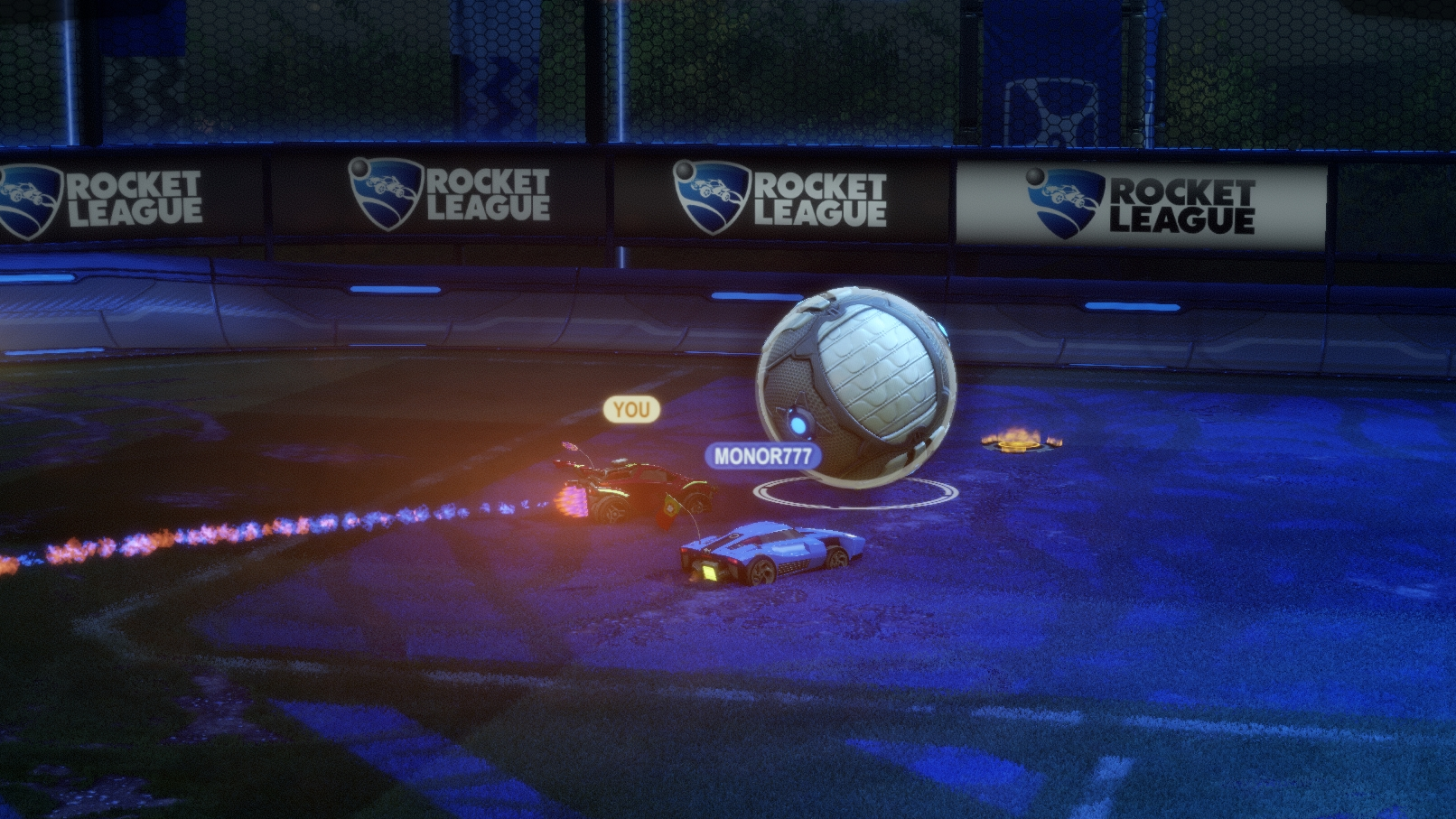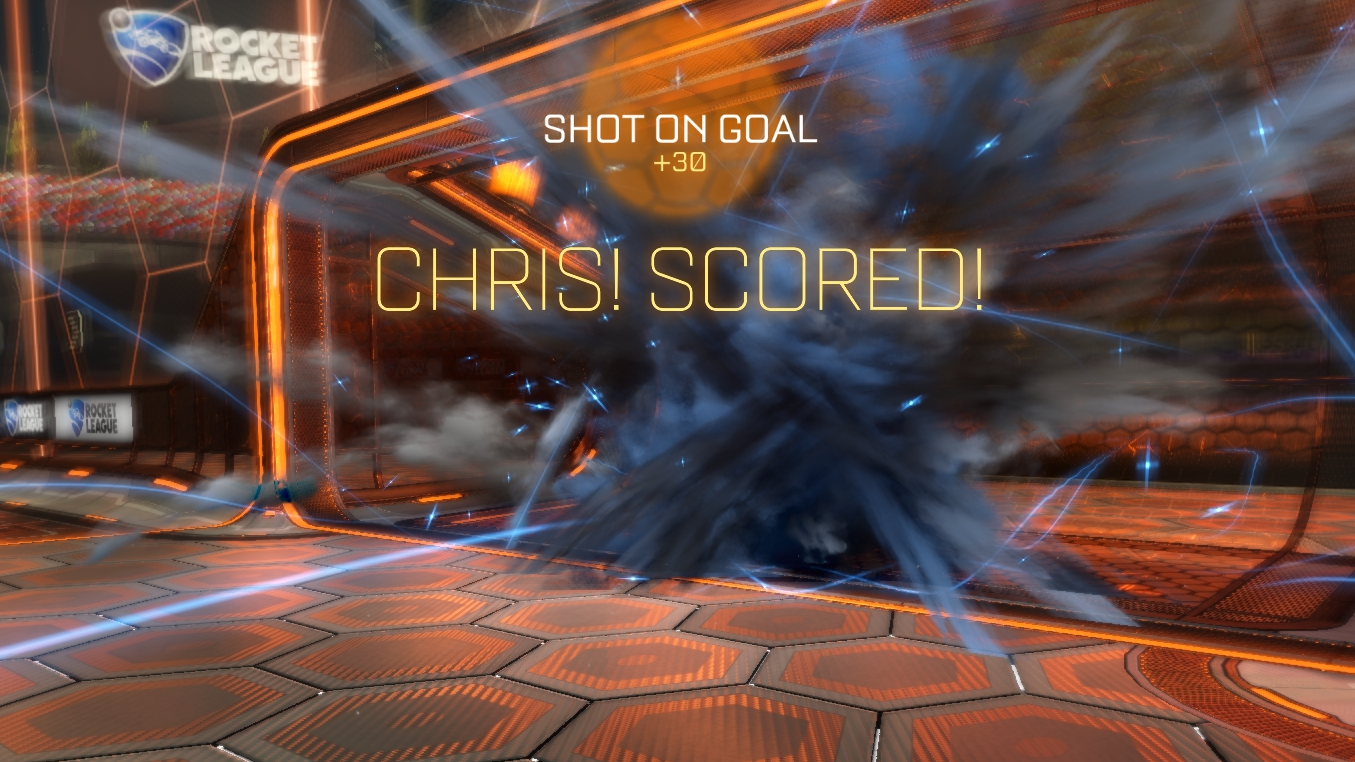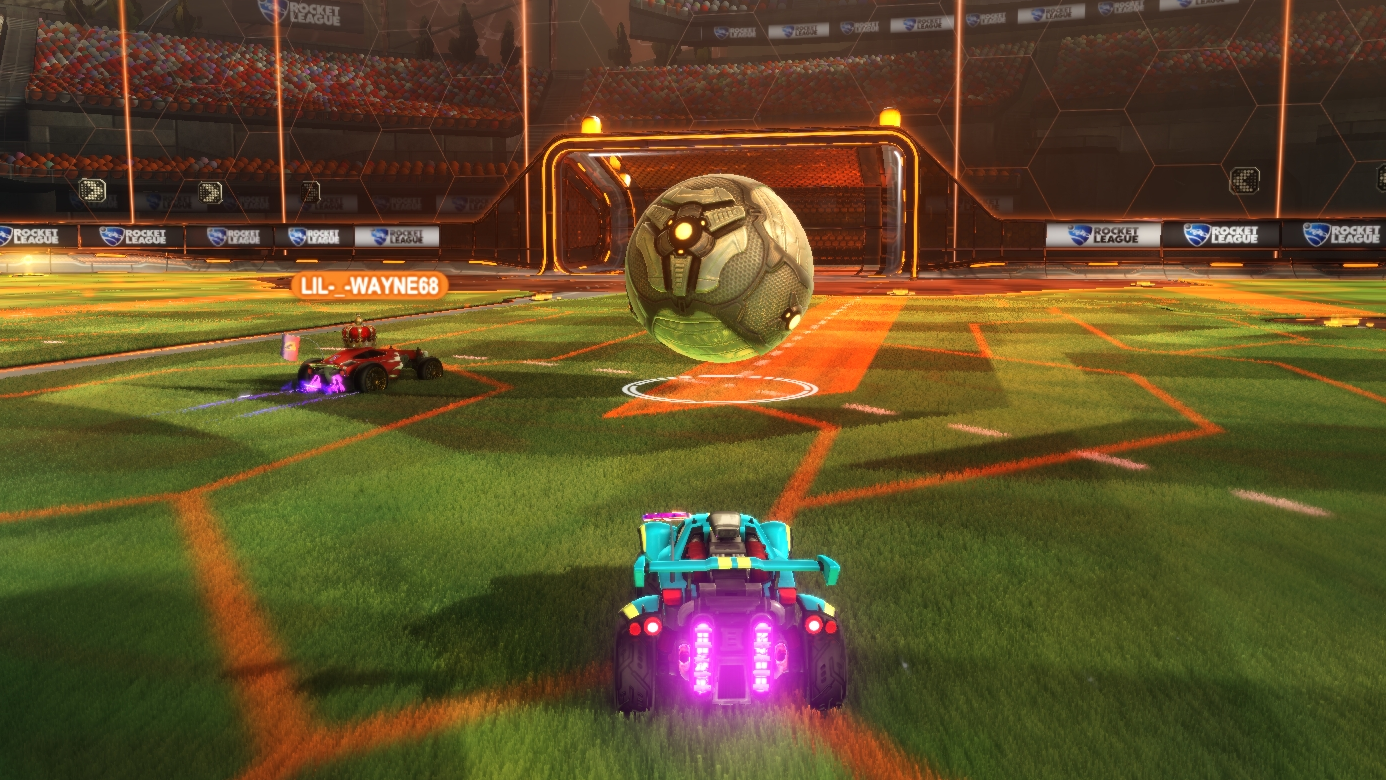Tumbling headlong into a Rocket League fixation


In Now Playing PC Gamer writers talk about the game currently dominating their spare time. Today, Chris considers yet another competitive obsession.
My developing Rocket League problem begins innocently enough. I’m playing in a games industry Dota 2 tournament one weekend, which means long hours spent sitting on Steam with my team waiting for our turn to play. Rocket League has just come out, but it’s not yet the smash hit it is destined to become. On a whim, and contrary to my intent to eat warm meals in the last week before payday, I buy a copy.
It’s immediately brilliant as a drop-in, drop-out party game. Rocket League is raucously silly in a dozen different directions at once. It’s a football game, yes, and also a driving game, but the combination of those in-and-of-themselves dry concepts is a slapstick physics playground. Slippery rocket cars leap and tumble after a big, floaty ball with a mind of its own. Terrible strikes result in tragic own goals. Well-meaning dashes knock allies out of dead-on free kicks. Then, five minutes later, it’s all over, somebody’s won, and everybody wants to play again.
The random distribution of hats, booster effects and paint decals means that within a few games every car has its own personality. My beloved truck boasts lime green flame detailing, a wizard hat, a tie-dye peace sign, and a booster that farts out a stream of rainbow flowers to the strum of a sitar. I feel profoundly connected to it.
As players drop in and out it’s easy to swap in bots or change to 2 vs 2 matches. We try taking on the world, for a bit. It’s great as a co-op experience. Then, about a day into our collective obsession, a few of us discover what high-level play looks like.

I am extremely competitive, but as much as I like to win at Rocket League I haven’t seen it as something that I’d seriously want to get good at. Then I realise that in addition to being a knockabout party game, Rocket League is also a fine spiritual successor to Tribes. It’s fundamentally a game about movement and finesse—about mastering a complex system that seems silly and imprecise at first but conceals surprising depth.
I watch gifs, videos, and even tune in for the first semi-professional Rocket League cups. So do my more competitive friends. This introduces a new aspect to our games: it’s still fun, and still very silly, but there’s an undercurrent of really wanting to be good at it. Goals that bounce in out of nowhere are fine, but when somebody smashes the ball into the corner of the net after a beautiful aerial cross the response is much more enthusiastic—a deadpan chorus of ‘nice’ that I associate with the exact moment I started taking Dota 2 really, really seriously.
There’s more evidence that history is repeating itself. It really hurts to lose—particularly in 1 vs 1 duels—and, well, I’m no longer sure that I should play at lunchtime. I find it difficult to be quiet.
The biggest gaming news, reviews and hardware deals
Keep up to date with the most important stories and the best deals, as picked by the PC Gamer team.
That’s one of the dangers, here. I don’t think my life can take another competitive obsession. Yet as I write this I can hear a couple of colleagues hooting at Rocket League across the office. Another group were playing it on PS4 at lunchtime. It turns out that ‘cars plus football’ is a combination that transcends platform boundaries. Everybody’s playing it. There’s talk of intra-magazine tournaments and perhaps—whisper it—a Rocket League match against Rock, Paper, Shotgun.
Joining in 2011, Chris made his start with PC Gamer turning beautiful trees into magazines, first as a writer and later as deputy editor. Once PCG's reluctant MMO champion , his discovery of Dota 2 in 2012 led him to much darker, stranger places. In 2015, Chris became the editor of PC Gamer Pro, overseeing our online coverage of competitive gaming and esports. He left in 2017, and can be now found making games and recording the Crate & Crowbar podcast.


